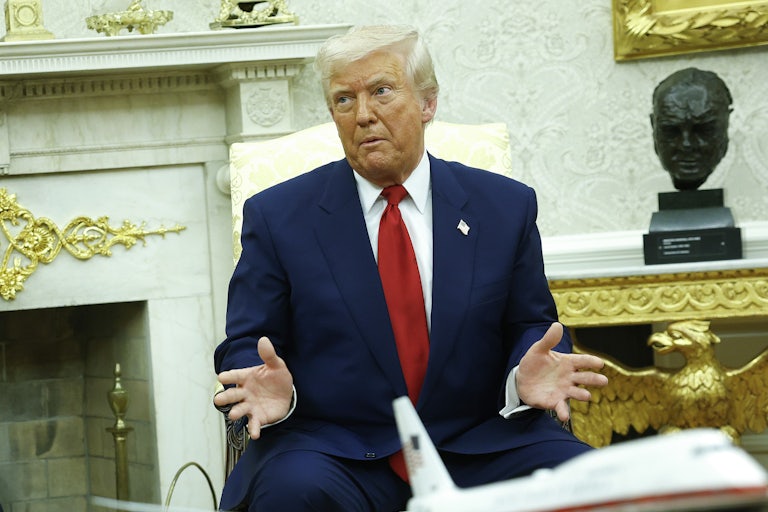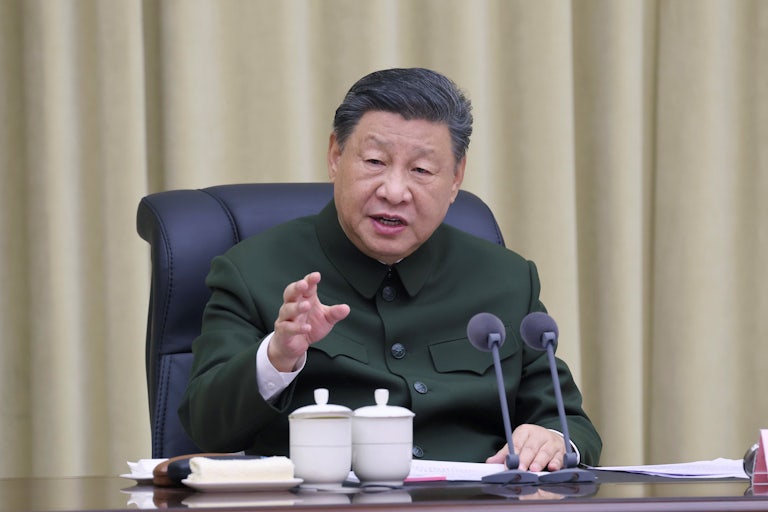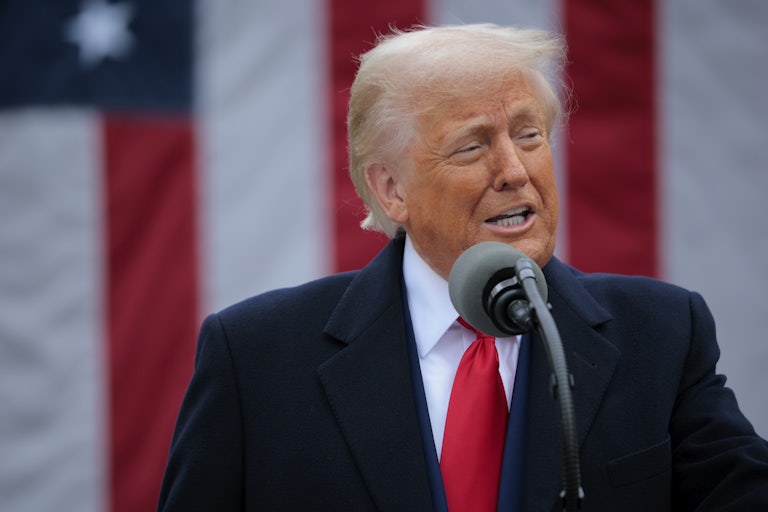Ketanji Brown Jackson Blasts Supreme Court’s Increasingly Shady Moves
The justice wrote a scathing dissent of the court’s latest decision to back Donald Trump.

Supreme Court Justice Ketanji Brown Jackson slammed the “inequitable” and “inappropriate” way the court ruled to allow Donald Trump to proceed with his deportations under the Alien Enemies Act of 1798.
In a scathing dissent, Jackson voiced her disapproval of the court’s Monday decision to strike down U.S. District Court Judge James Boasberg’s injunction pausing deportations under the AEA, which was used last month to expedite the deportation of more than 100 alleged gang members to a prison in El Salvador notorious for human rights abuses.
“The President of the United States has invoked a centuries-old wartime statute to whisk people away to a notoriously brutal, foreign-run prison,” Jackson wrote. “For lovers of liberty, this should be quite concerning.”
The court’s newest justice also took issue with how her colleagues had ruled on the issue, as part of the bench’s emergency, or shadow, docket, which sees immediate action on issues ranging from scheduling proceedings to requests to halt lower court rulings—like the government’s request to halt Boasberg’s injunction.
“I lament that the Court appears to have embarked on a new era of procedural variability, and that it has done so in such a casual, inequitable, and, in my view, inappropriate manner,” she wrote.
“At least when the Court went off base in the past, it left a record so posterity could see how it went wrong,” she wrote. Jackson then cited Korematsu v. United States, in which the Supreme Court had ruled that the government was right to order the incarceration of Japanese-American citizens during World War II. President Franklin Roosevelt had used the Alien Enemies Act to justify the brutality of Japanese internment.
The Supreme Court condemned its ruling in Korematsu in 2018, calling it “morally repugnant” and “gravely wrong,” but at the same time rubber-stamped Trump’s travel ban targeting six Muslim-majority countries.
Jackson argued that the court hadn’t learned anything.
“With more and more of our most significant rulings taking place in the shadows of our emergency docket, today’s court leaves less and less of a trace. But make no mistake: We are just as wrong now as we have been in the past, with similarly devastating consequences. It just seems we are now less willing to face it,” she wrote.
In recent years, justices have begun to issue far more significant rulings through the shadow docket, according to the Brennan Center for Justice. Unlike the 60 or 70 merit docket cases that the justices decide each term, shadow docket cases do not receive extensive briefings or hearings, and their decisions are accompanied by scant explanations.
“Surely, the question whether such Government action is consistent with our Constitution and laws warrants considerable thought and attention from the Judiciary,” Jackson wrote.
“But this Court now sees fit to intervene,” she said, “hastily dashing off a four-paragraph per curiam opinion discarding the District Court’s order based solely on a new legal pronouncement that, one might have thought, would require significant deliberation.”








